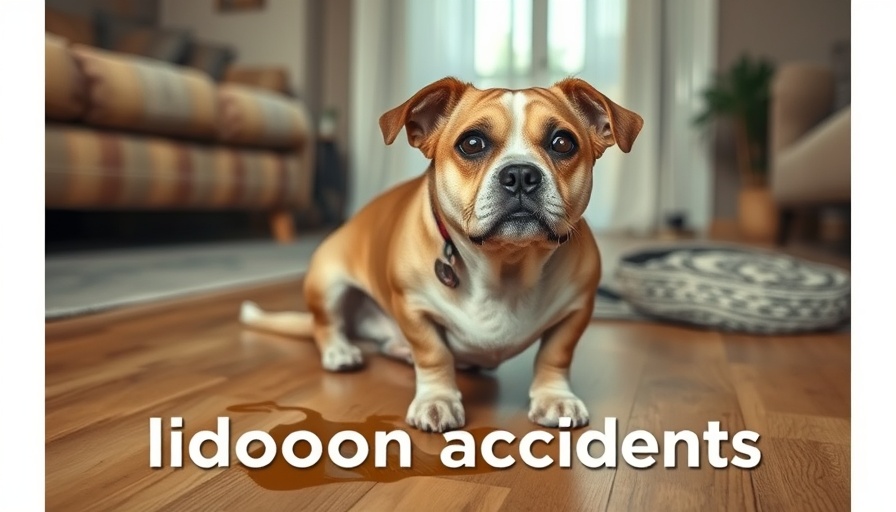
Understanding the Hidden Causes of Indoor Accidents in Senior Dogs
As our furry friends age, many pet owners may experience the unsettling discovery of urine puddles inside their homes. While these accidents can be frustrating, it’s crucial to understand that they may be symptomatic of underlying medical issues rather than merely a result of old age. Comprehending where these accidents come from can pave the way for solutions that enhance pet well-being.
The Distinction of Urinary Incontinence
Urinary incontinence is characterized by the involuntary leakage of urine, often occurring when the dog is in a relaxed state, such as during sleep. Unlike typical accidents that can stem from behavioral problems, dogs suffering from urinary incontinence are usually unaware of what’s happening. Recognizing the difference is vital for providing the right care.
Common Medical Ailments Leading to Incontinence
Several health issues can contribute to urinary incontinence, particularly in senior dogs. These include:
- Estrogen Deficiency: Particularly in female dogs, a decline in estrogen levels can lead to weakened bladder control.
- Urinary Tract Infections: Infections can irritate the bladder, causing frequent urination.
- Kidney Disease: As kidneys struggle with function, it can lead to increased urination.
- Neurological Decline: Age-related neurological issues can affect a dog’s ability to control urination.
As several dog breeds such as Boxers and Doberman Pinschers are more susceptible to these conditions, it is important for owners to be proactive in monitoring their pets’ health.
Strategies for Managing Urinary Incontinence
Providing the best care for a senior dog dealing with incontinence involves a multifaceted approach. Here are some effective strategies that can make a difference:
- Veterinary Diagnosis: Seek veterinary evaluation including blood tests and urinalysis to pinpoint the underlying causes.
- Dog Diapers: For pets showing signs of incontinence, dog diapers can offer a quick solution, keeping both the dog and living space clean.
- Frequent Potty Breaks: Scheduling more frequent bathroom trips can help reduce indoor accidents.
- Creating a Comfortable Environment: Maintaining a stress-free environment is essential, and adjusting the pet's living space can foster a sense of security for the animal.
Emotional Support for Owners and Pets
It's important that pet owners approach the situation with empathy. Pets’ accidents can be distressing, but understanding their needs is essential. Dogs do not misbehave when they experience incontinence; rather, it’s a reflection of their medical well-being. Ensuring that both the owner and pet can adapt to these changes together is part of nurturing their relationship.
The Role of Education in Pet Care
Educating oneself about senior pet health is invaluable. Websites, community resources, and veterinary professionals are excellent sources for understanding the complexities of pet health. Knowledge empowers pet owners, enabling them to detect early symptoms and seek timely interventions.
Conclusion: Create a Positive Experience for Senior Dogs
By equipping yourself with knowledge and taking proactive measures, you can help your aging animal maintain a happy and dignified life. Remember that your pet relies on you for support and understanding during this time. With compassion and the right strategies, you can mitigate indoor accidents and promote a fulfilling life for your cherished companion.
For more insights into pet care and management of senior animals, consider subscribing to community newsletters and engaging with local pet care groups. Support your pet's health journey today!
 Add Row
Add Row  Add
Add 




 Add Row
Add Row 


 Add
Add
Write A Comment